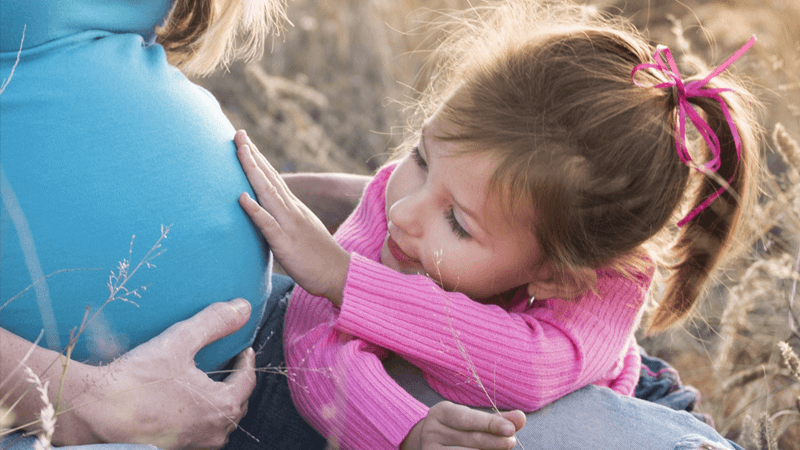Two medical ethicists have published a research paper positing that pregnancy should be classified as a disease, with abortion labelled “preventive medicine”.
The research, by Dr Anna Smajdor of the University of Oslo, Norway, and Dr Joona Räsänen of the University of Turku, Finland, is entitled ‘Is pregnancy a disease? A normative approach’, and was published in the British Medical Association’s Journal of Medical Ethics.
Throughout the paper, lead author Dr Smajdor compared pregnancy with measles, while suggesting that infertility is only treated as a disease “because of social norms that incline us to think people should have children”.
‘Abdominal mass’
In the introduction to the paper, the academic wrote: “Imagine a patient who visits the doctor, having an abdominal mass that is increasing in size, causing pain, vomiting and displacement of other internal organs. Tests are booked, and investigations are planned.
“But when the patient mentions that she has missed her period, these alarming symptoms suddenly become trivial. She is pregnant! No disease, nothing to worry about. But is this the right way to think about things?”
Dr Smajdor suggests there are “several pragmatic reasons” to consider pregnancy a disease, noting that, like measles, “it follows a predictable trajectory that usually ends in the patient’s recovery”.
But she also cited figures which suggested that although the mortality rate for measles is higher in developed countries, far more people become pregnant than contract measles, and so therefore “the lifetime risk of dying of childbirth significantly outweighs that of dying from measles”.
‘Objectively threatening’
The ethicist later comments: “We suggest that a wanted pregnancy can be seen in at least some cases as the lesser of two evils. In this case, the greater evil is childlessness. A woman might be lucky to become pregnant, if she longs to become a mother and sees no other way to achieve this.
“But she is unlucky that pregnancy, like COVID-19 and chickenpox, is objectively threatening to her health. And she is unlucky to be in a position where pregnancy – with all its risks – appears to be her only route to motherhood.”
Dr Smajdor also said that there is no ‘right way’ for humans to function, claiming “most educated people believe that humans evolved, along with all other species, as a products of a long series of random genetic reshufflings. We are not the product of a loving, careful intelligent designer.”
She also highlighted that human trials in artificial wombs are being planned, and suggested that if humans can successfully reproduce without a woman becoming pregnant, then pregnancy would almost certainly warrant disease status.
‘Preventive medicine’
Dr Smajdor claimed that pathologising pregnancy could lead to “better treatment for women”, saying: “If pregnancy is construed as a disease and access to contraception and abortion as preventive medicine, it puts the provision of these interventions on a different footing.
“This is not about ‘family planning’ or reproductive autonomy, but about medical need.”
She concluded: “While classifying pregnancy as a disease comes with some risks, we suggest that failure to recognise and respond to its disease-like features is likewise problematic, and puts many pregnant people at increased risk, as well as serving to reinforce and entrench social pressures on women in particular.”
‘Cherry picking’
Dr Trevor Stammers, former Chair of the Christian Medical Fellowship, told The Christian Institute: “The article cherry picks various theories about how disease may be defined and shoehorns pregnancy into the chosen mould – both measles and pregnancy cause harm therefore pregnancy is a disease.
“The authors downplay the role of purpose in relation to disease because they consider it self-evident that ‘We are not the product of a loving, careful intelligent designer.’ This is not argued but simply assumed.
“Even if however the human reproductive systems did evolve merely by time and chance, their purpose is clearly to primarily to enable reproduction and the paper is very dismissive of the pain of those suffering from infertility – a condition which ironically the authors do not appear to consider a disease but merely a result of ‘the social norms that incline us to think people should have children’.
“At times it appears it is not so much pregnancy they consider a disease but children themselves.”
Maternal bonding
Dr Calum MacKellar, Director of Research at the Scottish Council on Human Bioethics, disagreed with Smajdor’s suggestion that pregnancy could be removed from the process of human reproduction.
He said: “The affectionate feelings a mother develops for her baby during pregnancy has increasingly been recognised as playing a critical role for postnatal maternal-infant bonding. This is important because a growing number of research articles also indicate that maternal-foetal and maternal-infant bonding are crucial for optimal parenting and infant development.”
BMJ study: ‘Doctors risk patient safety by confusing sex and gender’
‘In a civilised society every life has value’, says bioethicist
Canadian bioethicists: ‘Poverty justifies euthanasia’
Canadian medic: ‘Drug addicts should be allowed to request euthanasia’


